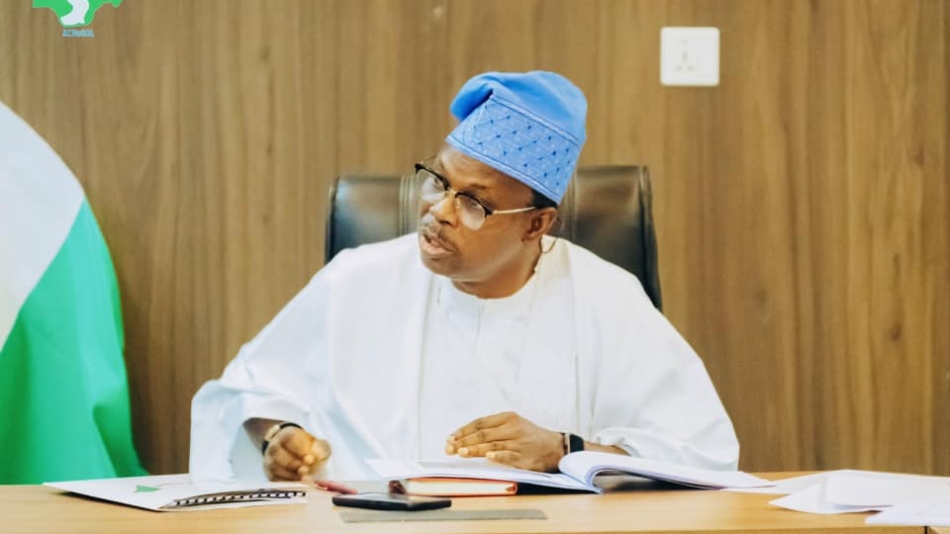The Hon. Minister of State for Environment, Dr. Ishaq Salako has urged the ACReSAL team to ensure the sustainability of project investments and long-term impact on people across the project implementing states.
Dr. Salako said this recently at the ministry’s headquarters when he received the ACReSAL Project National team led by the National Project Coordinator (NPC), Mr. Abdulhamid Umar who was in the Ministry to brief the newly appointed Minister on the ACReSAL Project Implementation Progress/status.

Dr. Salako noted that ACReSAL is a very important project and recommended that the project should have a database of all beneficiaries which could be done through National Identity Number (NIN) to help the project analyze and manage beneficiaries personal records, track inventory, and make informed decisions.
He said “Focus on job creation and one way to do that is to train more people on how to nurse seedlings, provide support to them and also help mobilize buyers for them.
“Strengthen relationship with National Park Services and Ministry of Tourism because the ministry of Environment intends to promote tourism but one of the challenges is security.
The Minister advised the project to ensure that there is a periodic mechanism for independent evaluation of the project to assess and ascertain what works well and what could be improved in the project.

Presenting the ACReSAL Project implementation progress, the NPC, Mr. Abdulhamid Umar informed the Minister that the project is state focus because the design implementation is at state level down to the community/catchment level and it is being implemented in the 19 (Nineteen) Northern States and Federal Capital Territory (FCT).

Speaking on the project characteristics, Mr. Umar disclosed that ACReSAL is Multi-sectoral covering Environment, Agriculture and Water, as well as Multi-level (National…State…Local/Community) project which is fundamental to Federal Government of Nigeria’s objective of restoring 1 million hectares of degraded land -out of the 4 million hectares target set for broader landscape restoration by 2030.
He told the minister that the project which became effective in June 2022 has key four components; Dryland Management, Community Climate Resilience, Institutional Strengthening & Project Management and Contingency Emergency Response Component (CERC).
According to the NPC, “The goals of the Project includes: reducing land degradation and erosion, increasing vegetative cover; improving agricultural productivity; increasing availability and access to water; improving pasture management and nomadic grazing practices and improve farm and non-farm livelihoods to broaden economic activity, particularly for women and vulnerable groups, and reduce the community’s dependency on, and inappropriate use of natural resources.”
He revealed that presently land restoration activities have commenced and the project has restored 1,139 hectares of degraded land. He also noted that the project has recorded 96,529 beneficiaries, 44,992 are women (representing 47%). Benefits ranging from sensitization, solar boreholes installed (providing access to water for agricultural and domestic purposes), distribution of clean cook stoves among other achievements.
In attendance at the meeting are the Permanent Secretary, Federal Ministry of Environment, Dr. Ibrahim Yusufu Idris, Directors and other officials of the ministry.



